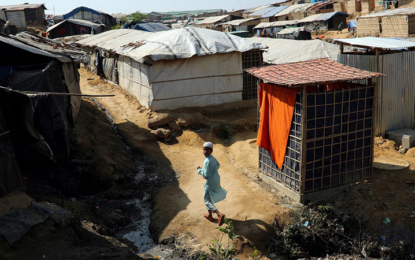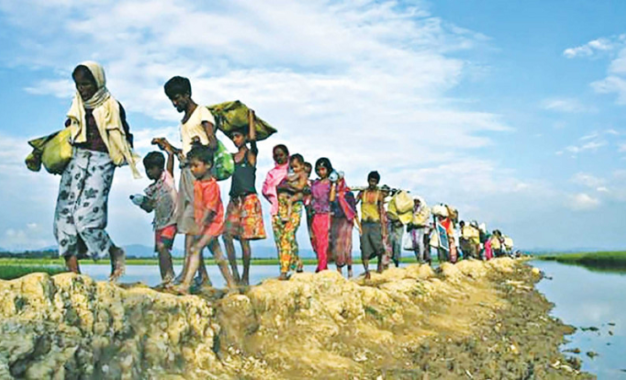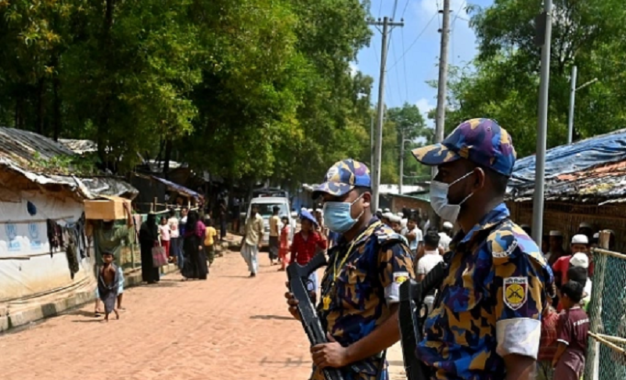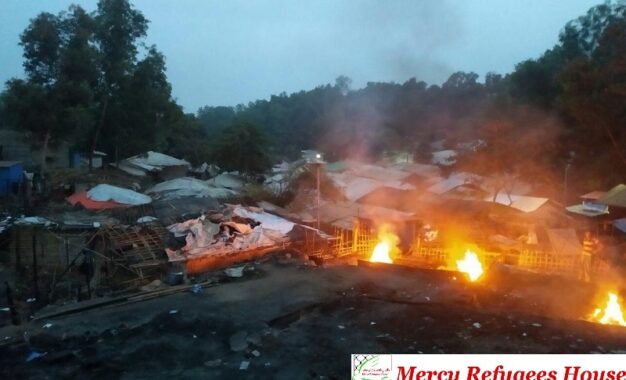Latest News
Women more vulnerable to Covid-19 at Rohingya camps
Bangladesh, Help Refugees, Human Rights, Myanmar, Refugees issues, Religious Rights

Women lead the Covid-19 infection cases at the camps with 53%. While more men are dying worldwide from coronavirus compared to women, the situation is completely the opposite at the Rohingya refugee camps in Bangladesh.
In Bangladesh, the death rate from Covid-19 for men is at 76.97% and 23.03% for women, according to statistics compiled by Directorate General of Health Services on November 6.
However, out of nine deaths from coronavirus reported from Rohingya camps of Cox’s Bazar, 56% were women and 44% were male, said data by World Health Organisation (WHO).
For these nine deaths, in the age-based category, all the male deaths were reported to be among people aged over 60 years, while for females, it was 33% for ages between 51 and 60 years and 11% each for the 41 to 50 years category and below 10 years category, said a WHO situation report as of November 1.
Currently, over a million Rohingyas are being sheltered at camps in the coastal town of Cox’s Bazar in southern Bangladesh.
ALSO READ THIS: UN CHIEF HOPES MYANMAR ELECTION WILL ALLOW ROHINGYAS TO RETURN
Camps with higher cases
As of November 1, a total of 14,363 tests were conducted and 336 Covid-19 cases were reported among Rohingya people, who are now residing in the world’s largest refugee camp in Cox’s Bazar.
Here, women lead the tally of Covid-19 patients at the camps with their infection rate being 53%.
Interestingly, people aged below 10 years are found most vulnerable for coronavirus infections in camps, while people aged below 10 years saw the highest percentage of infection – 17% male and 18% female.
Among the camps, the highest number, 49 confirmed cases, was reported from Camp 24, Camp 2W with 31 cases, and Camp 3 and Camp 15 each with 24 cases respectively.
Camp 4, 1W and 7 reported 12 cases each. Camp 17 had 11 cases, while there were 10 each from Camp 1E and Camp 10.
Amazon Sponsorship
Recent Posts
Jul 29, 2023
It has been close to six years since hundreds of thousands of Rohingya faced a deadly genocide by Myanmar’s military and fled the country in search of protection and refuge in neighbouring Bangladesh. The Rohingya population has been undergoing persecution, discrimination, arbitrary arrests, and atrocities in Myanmar for over seven decades. Their condition is alarmingly […]


















